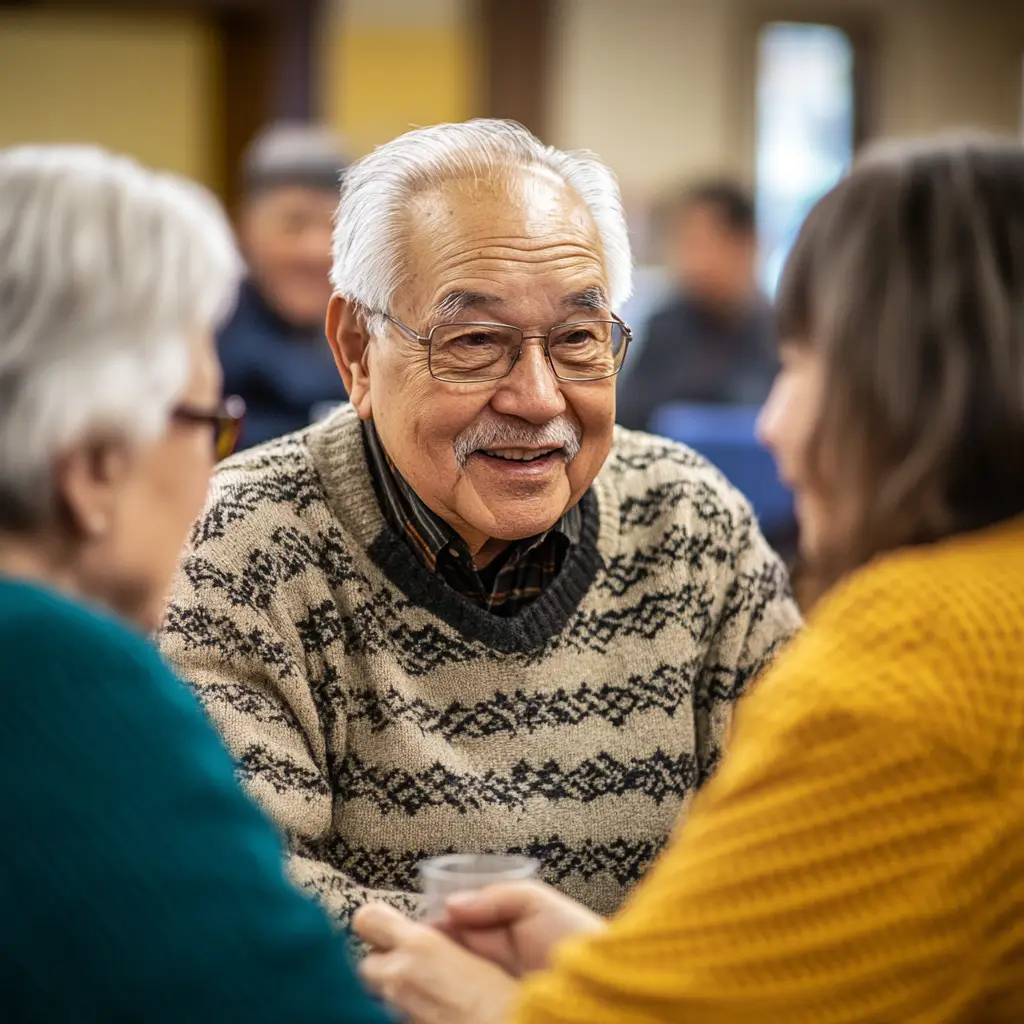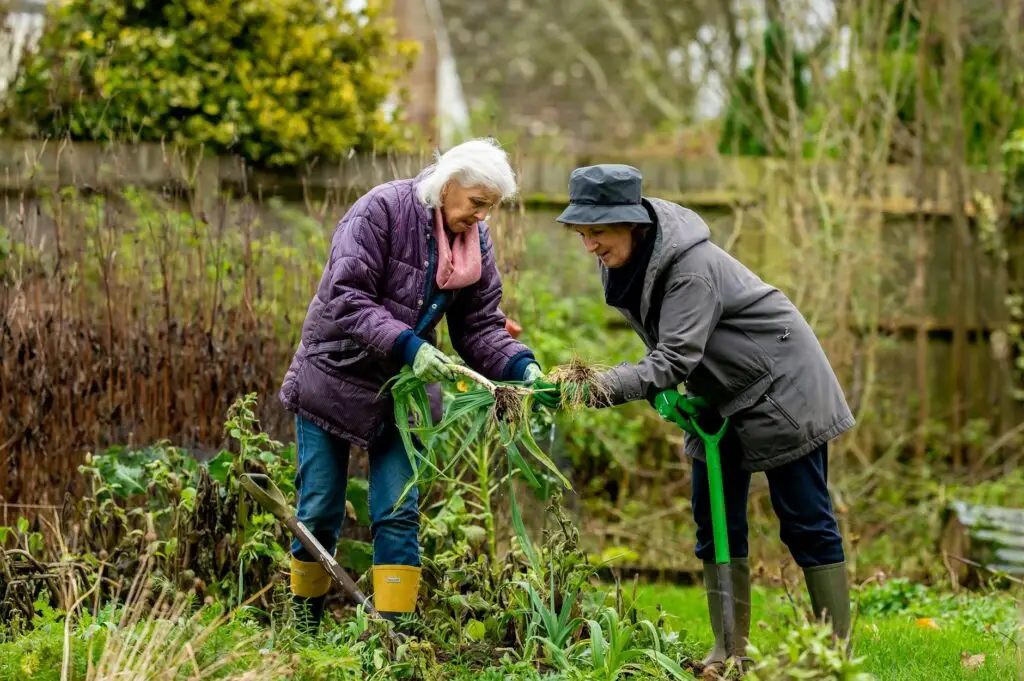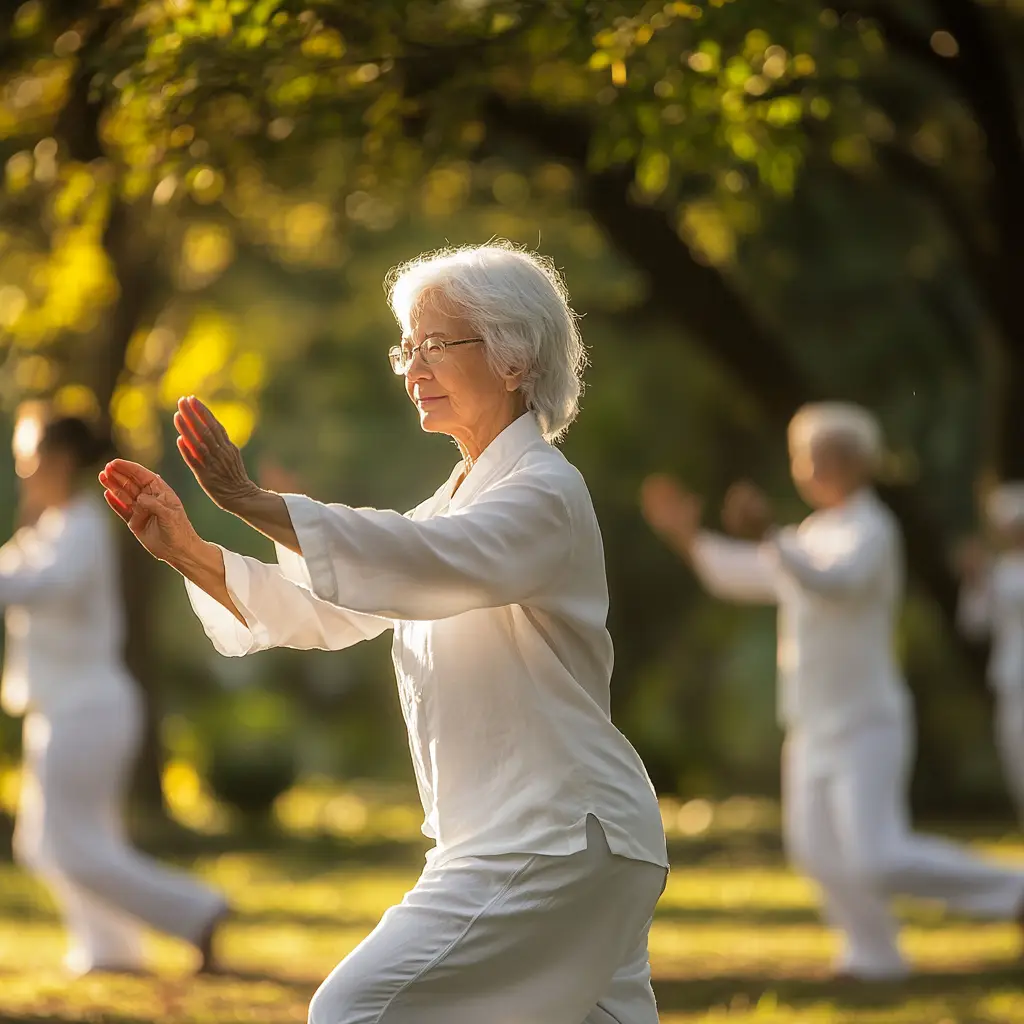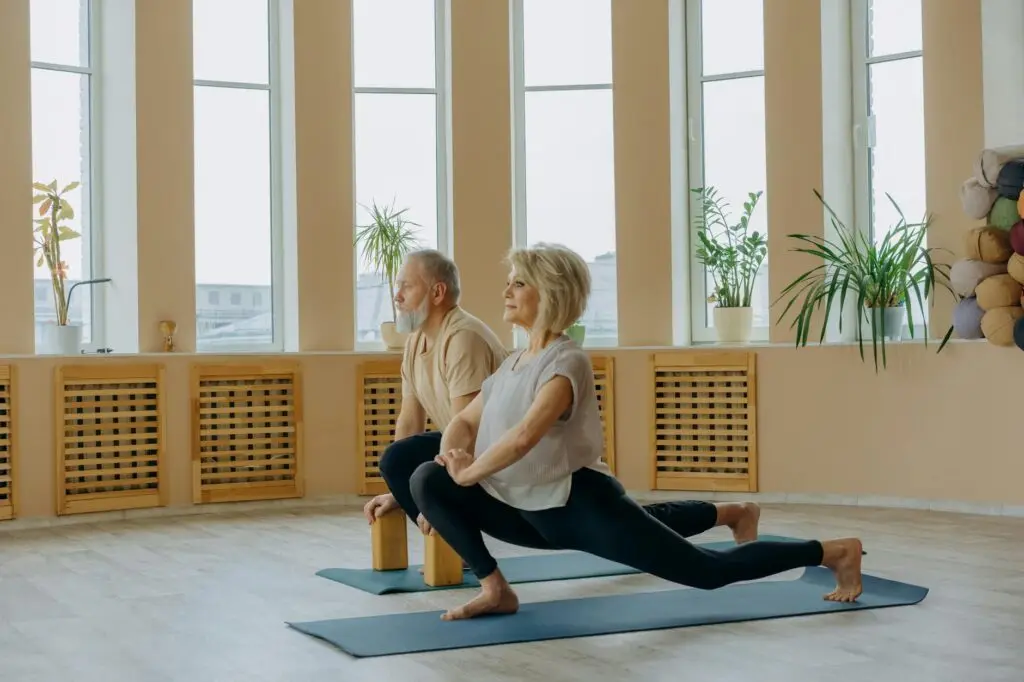Retirement brings the freedom to enjoy each day at your own pace, but that shift can feel unsteady without purpose or structure. Staying active in body and mind helps you make the most of these years and adds real meaning to life after work. Simple, low-cost hobbies play a big part; they boost mood, sharpen memory, and fill your days with laughter and connection, whether at home or in your community. Affordable activities give you energy, relieve stress, and keep you moving forward with intention. This post will spotlight 25 great hobbies that won’t strain your budget but can add more profound happiness, routine, and purpose to daily life.
Social and Community-Based Hobbies

Making new friends and staying active in your community doesn’t have to be pricey or stressful. Social hobbies are an excellent, affordable way to find purpose in retirement and fill your days with laughter, friendship, and rewarding activity. Whether you love sharing stories, giving back, or getting outdoors, these choices add real joy and connection.
Volunteering: Give Back and Connect
Volunteering offers retirees a sense of accomplishment and community. Helping others can boost your mood and self-esteem while making authentic friendships. Whether you prefer regular commitment or occasional opportunities, there’s something for everyone—no special skills needed.
Local ideas to get started include:
- Serving meals at a food bank or soup kitchen
- Mentoring young students
- Joining park cleanup crews
- Delivering food for Meals on Wheels
- Participating in hospital or library programs
Many organizations make it easy to find the perfect fit. Explore these volunteering opportunities for seniors and try out different roles until you find one that feels right.
Book Clubs and Reading Groups
Reading doesn’t have to be a solo activity. Book clubs are a friendly, low-cost way to open your mind and form meaningful bonds. These gatherings spark lively discussion, laughter, and sometimes even lifelong friendships. All you need is a willingness to read and share your thoughts.
Many public libraries and community centers run free or nearly free clubs. You can also check out online book clubs for seniors if meeting in person is hard. Try rotating hosts or letting each member choose a title. With every new book, you’ll see fresh perspectives—and probably learn something new about your friends, too.

Senior Centers and Community Events
Senior centers are a one-stop shop for affordable social activities. They offer classes, workshops, dances, game nights, and more. Check your local center’s calendar if you’re curious about painting, Tai Chi, technology, or group fitness.
Other options include holiday gatherings, potlucks, and educational sessions. All are great places to reconnect with old friends or make new ones. Find inspiration in this roundup of senior center activities and visit events even if you’re new—there’s always room for another smile.
Walking or Nature Groups
Joining a walking group is simple, free, and uplifting. Regular strolls in a park or along a local trail help you stay fit and can lead to real connections. Many groups mix in social time with coffee or conversation after walks. Some even focus on birdwatching or exploring new parks.
Check bulletin boards at libraries or gyms for local groups, or learn more about starting or finding a walking club near you. The fresh air and friendly company make each step more rewarding, and exploring nature together keeps retirement lively and new.
Creative and Artistic Hobbies

Retirement is the perfect time to wake up your creative spirit, even if you haven’t picked up a pencil or garden trowel in years. Artistic hobbies spark joy, help you relax, and give you a sense of accomplishment. Best of all, you don’t need expensive equipment or years of experience to enjoy these activities from home.
Painting, Drawing, and Coloring: Suggestions for Affordable Art Supplies and Relaxation
Many people think you must spend a fortune on supplies to start painting or drawing. That’s not true. Everyday items like pencils, colored pens, and notebook paper are all you need to get going. For painting, a small set of watercolor paints, some brushes, and thick paper can be found at discount stores or online. Sketchbooks, graphite pencils, and a good eraser are plentiful and budget-friendly.
You can turn scrap paper into works of art or use coloring books designed for adults to unwind. Coloring has been shown to reduce stress, lower anxiety, and bring a quiet focus—just like meditation with a splash of color.
For more inspiration and deals, check out online sources like Cheap Joe’s Art Stuff and clearance art supplies at Jerry’s Artarama. Supplies don’t have to cost more than your morning coffee.
Photography with Smartphones
Today’s smartphones and budget cameras put quality photography in everyone’s hands. There is no need for fancy lenses; your phone is already a powerful tool. Start by snapping photos on daily walks, at gatherings, or in your backyard. Free apps let you crop, adjust colors, and add filters with a tap.
Share your memories with family through email, social media, or printed photo books. The goal isn’t perfection; it’s about saving moments that make you smile. Over time, you’ll notice more beauty in everyday life—morning shadows, a friend’s laugh, or a bird at your window.
Gardening at Home or in Community Plots

Gardening doesn’t have to mean a big backyard. For those short on space, container gardening uses recycled pots, buckets, or old mugs to grow everything from herbs to cherry tomatoes. Many towns also offer low-cost community plots where neighbors gather to plant and share the harvest.
Just getting your hands in the dirt brings calm and purpose. Watching seeds sprout and caring for plants provides satisfaction and a natural routine. Community gardens, in particular, offer both friendship and fresh produce—double the reward for your time and effort.
Writing Memoirs, Poetry, or Letters
Writing invites you to reflect, share, and connect. Memoirs are a chance to save family stories, and poetry can capture a feeling or a moment in a few short lines. You don’t need expensive software or workshops—just paper, a notebook, or an inexpensive journal.
Handwritten letters brighten someone’s day, or you can start a gratitude journal to focus on the good things each morning. Free online resources and local libraries often feature writing prompts and advice for beginners. These small efforts can help you leave a legacy and keep your mind active.
Trying creative hobbies is not about being an expert. It’s about enjoying the process, seeing progress over time, and letting your personality shine in every project. Even on a budget, there’s room for everyone to make art and memories in retirement.
Physical Hobbies for Health and Wellness

Staying active is one of the best gifts you can give yourself during retirement. Physical hobbies don’t have to be expensive or demanding. Regular movement can help you feel younger, sleep better, and keep everyday aches at bay. There are plenty of enjoyable and affordable ways to boost energy, balance, and strength—without straining your wallet or your joints.
Walking: The Simplest Exercise
Walking is nearly perfect for retirees. It’s free, kind to the joints, and easily fits any schedule. Heading out for a daily stroll can improve heart health, steady your weight, lift your mood, and support bone strength. Studies show that even short, regular walks can make a big difference in your health [9 Health Benefits of Walking for Seniors].
Want to make each walk more enjoyable? Try these tips:
- Invite a friend or neighbor to join you—conversation makes the time fly.
- Pick a scenic park path, a quiet neighborhood, or a safe shopping mall for variety.
- Listen to your favorite music or an engaging audiobook as you walk.
- Set small goals, like walking to a local coffee shop or around each block in your area.
Joining a local walking group can help you stay committed and forge new friendships. Walking combines gentle movement, fresh air, and connection, making it a pleasure instead of a chore [Walking – the benefits for older people].
Low-Cost Fitness Classes: Yoga, Tai Chi, and More

Low-cost exercise classes can be an excellent way to boost strength, flexibility, and balance. Many community centers, senior centers, and local gyms offer classes with special senior pricing or even free sessions. Yoga and Tai Chi are great for flexibility and joint comfort, while gentle aerobics can help with stamina and cardiovascular health.
Whether you’re a beginner or returning after a break, classes for seniors move at a comfortable pace and often use chairs or supports. Check with senior centers or your local parks department. Trying a new class is a fun way to challenge yourself, meet people, and stay motivated.
Dancing for Fun and Fitness
Dancing is both joyful and effective for health. From line dancing to ballroom or easy swing, there’s a style for every comfort level. Dancing combines movement, music, and social time, which keeps your mind sharp as you learn steps or routines.
Senior centers and community halls often host dance classes or socials at little to no cost. Dancing improves balance, burns calories, and is kinder on the joints than high-impact workouts. Plus, it’s hard not to smile when your favorite tune plays, and you move with friends.
For a deeper look at the benefits, national organizations offer guides and video tutorials for beginners. Find a local group, invite friends, or even enjoy a dance night at home to keep things fun and low-pressure.
Biking and Swimming at Public Facilities
Biking and swimming are fantastic choices if you’re looking for gentle, full-body exercise. Many towns have public pools with low entry fees or free swim hours for seniors. Swimming helps mobility and strengthens muscles with less impact on your body. Check with your local YMCA, recreation center, or parks department for affordable classes or open swim hours.
Biking is another joint-friendly way to get outside and move. For safety, start with flat, smooth paths or dedicated bike trails. Some libraries and rec centers offer loaner programs if you don’t own a bike. Always wear a helmet, follow local rules, and ride during daylight for the safest experience.
These activities don’t just keep you fit; they’re fun and social and let you explore new places in your town. Whether you pedal, waltz, or glide through the water, you’ll find that staying physically active delivers lasting rewards.
At-Home and Solo Hobbies

Life at home during retirement opens up rich opportunities to enjoy hobbies that stimulate your mind and bring a sense of accomplishment. Many affordable options can be enjoyed alone or shared with loved ones, helping you stay sharp and fulfilled. Whether you prefer quiet afternoons with a puzzle, trying a new recipe, making music, or tackling small house projects, these activities keep every day rewarding, right from the comfort of your own space.
Board Games and Puzzles: Options for Solo or Group Play, Emphasizing Cognitive Benefits
Engaging in board games and puzzles isn’t just about passing the time; it’s an effective way to keep your mind nimble. From classic games like chess and Scrabble to jigsaw and logic puzzles, these activities offer mental workouts that boost memory, concentration, and problem-solving. They can be enjoyed solo, giving you a calm moment to yourself, but they also work great for afternoons with friends or family.
Research highlights how regularly playing games can help lower the risk of cognitive decline, improve short-term memory, and even spark creativity. For group play, board games foster laughter and social connection, which are equally important for well-being. Consider creating a weekly puzzle night or rotating favorite games so it feels fresh each time you play. For a deeper look at why these hobbies matter, see the benefits of playing board games and puzzles for older adults.
Cooking and Baking New Recipes: Fun, Practical, and Even Intergenerational
Trying out new recipes can add fun and routine to your week while helping you eat healthier. Cooking at home isn’t just practical; it gives a sense of purpose, lets you experiment with ingredients, and brings immediate rewards. Baking bread, simmering a new stew, or whipping up cookies are simple pleasures that make your home feel welcoming.
This is also a great way to involve others. Grandkids love to measure, stir, and taste. Even simple recipes allow everyone to pitch in, share stories, and build memories together. If you’re looking for inspiration, plenty of easy and nutritious recipes are made for retirees. Cooking together can become a family tradition; when you cook for yourself, you always know exactly what’s going into your meal.
Home Music: Instruments and Singing
Learning an instrument or singing at home brings genuine joy and helps keep your mind focused. You don’t need a big budget to get started—harmonicas, ukuleles, and simple keyboards are affordable and often perfect for beginners. Even singing along with the radio is a good way to lift your mood and feel more engaged daily.
Thanks to online videos and music tutorials, it’s easier than ever to pick up new skills from home at your own pace. Many retirees find music soothes stress, improves memory, and brightens daily routines. Interested in which instruments are easiest to learn? Here’s a guide to musical instruments for seniors to try.
DIY Fixes and Home Projects: Small Repairs, Crafts, and Upcycling
DIY home projects can bring a sense of pride and save money. Simple repairs—like fixing a wobbly chair, repainting a wall, or organizing a pantry—improve your living space and keep your hands busy. You can start with small tasks, and as your interest grows, try upcycling old furniture or creating useful crafts from items you already have.
These projects are flexible. Try customizing picture frames, making birdhouses, repurposing jars, or tackling small woodworking challenges. There’s satisfaction in completing a project and seeing real progress in your home. For motivation and more ideas, check out this list of DIY home project suggestions for retirees. A few Sunday hours can become a cherished hobby that fills your home with handy, personal touches.
Educational and Lifelong Learning Hobbies

Challenging your mind and learning new skills brings fresh excitement to every day in retirement. Staying curious isn’t just a good habit—it leads to meaningful connections, sharper memory, and a strong sense of accomplishment. Many affordable hobbies let retirees pick up new knowledge at any pace, whether online or in the community. These options are accessible to nearly everyone and come with plenty of support.
Free or Discounted Online Courses: List resources for seniors to learn new subjects or develop skills online at little or no cost
You’re never too old to learn something new. Online courses allow you to pick topics that fascinate you, all from the comfort of home—often for free or at a deep discount. Top resources offer everything from photography and history to technology and wellness.
Here are places to start:
- Senior Planet offers live online classes for older adults, covering technology, health, and creative pursuits. Check their Online Classes for Seniors for the latest topics.
- Harvard University has a catalog of free policy, history, and literature courses. Many are self-paced so that you can learn on your schedule. Browse the Free Courses – Professional and Lifelong Learning page.
- AARP provides free webinars and classes with topics that help you navigate retirement, well-being, and more. Their online learning portal is worth bookmarking.
- Local colleges and community centers sometimes offer free or reduced-fee online courses for seniors. Listings can often be found in this guide to free online college courses for seniors.
Each site explains technology requirements and how to join, so getting started is easy, even for beginners. Whether you want to revisit a favorite subject or try something new, these courses keep your brain active and your days full.
Learning a New Language: Discuss free apps, community classes, and online tools for language learning
Practicing a new language sharpens memory, improves listening skills, and makes travel more fun. Many free and budget-friendly apps enable language learning without expensive software or in-person tutors. Learning a few phrases weekly gives your mind a workout and brings a taste of the world into your home.
Popular free language learning tools:
- Duolingo: This app is Simple, engaging, and free. It offers dozens of languages and short lessons you can fit into any schedule. It’s beginner-friendly and keeps you motivated with daily goals and reminders.
- Memrise and Busuu: Both have strong free versions that introduce new words and encourage short practice sessions.
- Many public libraries provide free access to courses like Mango Languages, so check with your local branch.
Community centers sometimes host beginner conversation groups or classes, where you can practice with neighbors and make learning social and fun. Look for local meetups or language tables at your senior center.
Museum Visits and Virtual Tours: Present affordable ways to engage with art and history, both in-person and digitally
Museums open doors to art, culture, and history—and you don’t have to travel far or spend a lot to enjoy them. Many museums offer senior discounts, special free admission days, or even free entry for those with specific memberships or benefits.
For in-person visits:
- Check for senior rates at large museums; for example, this list of museums with senior discounts spotlights many options nationwide.
- Many museums participate in Museums for All, offering free or reduced admission for visitors with SNAP benefits.
- Regional museums and city art centers often have “First Fridays” or community days, during which tickets are free or discounted.
If you prefer to explore from home, virtual tours bring the world’s top collections to your screen:
- The Louvre’s online tours let you wander through world-famous galleries without leaving your couch.
- The virtual tour of the Smithsonian National Museum of Natural History offers a room-by-room look at gems, fossils, and more.
- Taste of Home put together a guide to free virtual museum experiences, from art to space and beyond.
These options make culture and learning possible on any budget. Stroll painted halls, brush up on world history, or enjoy a quiet afternoon exploring virtually—there are no long lines, and it’s all from the comfort of home.
FAQs About Affordable Hobbies for Retirees
Finding affordable hobbies brings enjoyment and value to retirement, but questions often come up about the best options and how to get started. Below are answers to the most common questions, breaking down practical tips for choosing, joining, and affording new activities.
What are some affordable hobbies that help retirees stay connected to others?
Social connection does not require spending much. Group hobbies like walking clubs, gardening teams, book circles, and community volunteering keep you involved and supported by others. Board games, card nights, and group fitness classes (offered cheaply through local centers) promote laughter and genuine friendships. Resources like this list of inexpensive hobbies for retirees provide even more ideas.
If you love the outdoors, join nature groups or local bird-watching meetups. For those who enjoy a relaxed pace, a weekly potluck or regular coffee meet-up brings people together for conversation and fun, all at little or no cost.
How do hobbies support a sense of purpose during retirement?
The right hobby provides structure, a sense of achievement, and belonging. It helps fill time with a meaningful routine rather than idle hours. Activities like mentoring, volunteering, or learning a new skill give something to look forward to each week. These positive routines benefit self-esteem and can replace the purpose that work brought, as highlighted in guides on finding a sense of purpose in retirement.
Setting small goals—like finishing a book, caring for a plant, or organizing a club meeting—creates satisfaction. Hobbies give you reasons to connect, share, and grow.
Are there ways to join local hobby groups without spending much?
Absolutely! Community centers, senior centers, libraries, and faith groups often host free or donation-based activities. You can find walking groups, fitness classes, or craft meetups for little or nothing. Websites like Meetup let you search for local groups by interest. Some clubs ask only for help with snacks, supplies, or event setup, and everyone is welcome; no fancy equipment or fees are required.
Public bulletin boards at the library or rec center often feature local gatherings that welcome new members, especially retirees with unique life experiences.
What are budget-friendly hobbies for retirees with limited mobility?
Staying involved and creative is just as possible with limited mobility. Some excellent choices include:
- Puzzle-solving (crosswords, sudoku, jigsaw puzzles)
- Card and board games
- Journaling, writing letters, or creating family recipes
- Knitting, crocheting, or simple crafts
- Home-based gardening (herbs, small container plants)
- Listening to or playing music
- Digital hobbies (photography, learning new tech skills)
Several guides list more mobility-friendly hobbies for seniors that are easy on the body and budget.
Can retirees enjoy new hobbies without prior experience or special skills?
Yes, retirement is the perfect time to try something new. Many hobbies are designed for beginners and require zero prior skill. Joining a group can make starting less intimidating and often brings in patient, welcoming members. Cooking, drawing, walking, basic yoga, and beginner language learning are all open to newcomers.
Most clubs, classes, or online tutorials offer step-by-step guidance, so there’s no pressure to be an expert immediately. Related reading: Retirees can pursue new interests with no experience.
How can I discover which affordable hobbies best suit my interests?
Start by reflecting on small joys. What activities grabbed your attention in the past? Think of childhood pastimes, enjoyable work tasks, or skills you always wanted to learn. Try new things in low-commitment ways (sample a class, attend an open group, or borrow supplies).
Review hobby idea lists like these 50 enriching hobbies for retirees to spark inspiration. Don’t be afraid to ask friends about their favorite pastimes or pick a new activity to try each month until one feels right.
Where can retirees find supplies or resources for new hobbies at a low cost?
Look for supplies at chain discount stores, thrift shops, garage sales, or dollar stores—these often carry arts, puzzles, and craft materials. Many libraries offer free or low-cost “maker” kits and board games to borrow. Senior centers sometimes supply basics for group hobbies, and websites like Oriental Trading specialize in senior craft kits at fair prices.
Bulk deals and free shipping days help keep costs low for online shoppers. Swapping and trading supplies with neighbors is a fun and social way to gather what you need. Some towns also create “tool libraries” for gardening and DIY tools—a smart way to try something new without investment.
Conclusion
Affordable hobbies do more than fill free time—they create energy and genuine satisfaction in retirement. These activities support health, sharpen memory, and help you stay connected. You’ll find laughter, pride, and new friendships without spending much money.
There’s no right or wrong way to try something new. Whether you join a group or stick with solo projects, each hobby can bring purpose and excitement to your days. Want to help others? Enjoy creating? Love to stay active? There’s something for everyone.
If you have a favorite affordable hobby or a tip for getting started, add your thoughts in the comments. Your story matters and might inspire someone else. Thanks for stopping by—explore these ideas and let retirement be one of your happiest, most rewarding chapters yet.
🎯 Download the FREE Try 10 in 30 Days Challenge Board
Discover fun, affordable hobbies that add purpose and joy to your retirement—one small step at a time.
Take the challenge and explore new passions in just 30 days!












Add comment